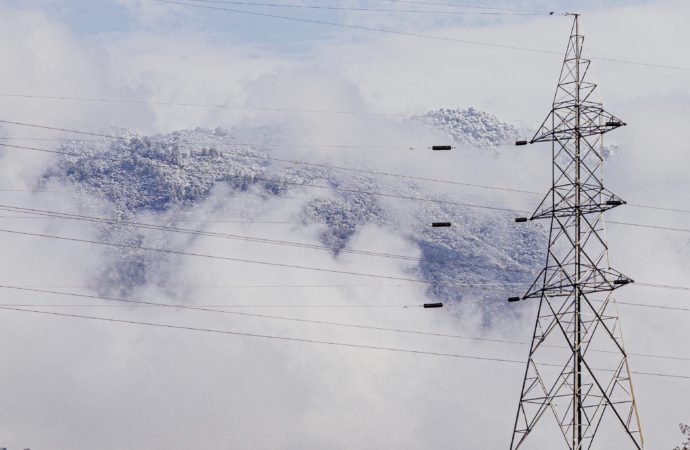Coloradans might want to begin brushing up on their German.
At least enough to be familiar with the word Dunkelflaute, which roughly translates to “dark doldrums.” The term describes a weather pattern of low wind and limited sunlight that makes generating electricity from renewables nearly impossible.
The event is relatively common in northern and western Europe during the winter months—hence the German name—and just last month it led to a devastating spike in gas prices in the U.K. while forcing Germany to supply nearly half of its electricity needs from coal (so much for that energiewende).
But Colorado is not immune to similar weather patterns during the winter months. It can be particularly disruptive to the state’s ability to meet electricity demand due to the advanced penetration of wind in its energy mix.
In fact, the state got a small taste of the very phenomenon through the New Year.
It looks like Colorado's wind generation decided to take a few extra days off before and after New Years. (1/7) pic.twitter.com/xCpqkg37SL
— Jake Fogleman (@Jake_Fogleman) January 3, 2023
Between December 30th and January 2nd, Colorado’s wind fleet (with its roughly 4,500 MW of installed capacity) went from producing 2,000 MWh of electricity down to the negatives on multiple occasions. Solar generation similarly flatlined on January 2nd, when overcast skies arrived in the state.
Fortunately, fossil fuels were able to pick up the slack to an extraordinary degree.
Yesterday's generation mix was almost entirely fossil fuels, as high as 97% at certain points in the day, due to overcast skies with little to no wind. (2/7) pic.twitter.com/SmrJl7erz1
— Jake Fogleman (@Jake_Fogleman) January 3, 2023
Natural gas, in particular, shouldered most of the load, likely because it could ramp up more efficiently than coal when wind and solar failed to generate appropriately. Temperatures never rose above the low 20s on January 2nd either, which means not only was gas relied upon to supply the bulk of the state’s electricity, but it was also likely in high demand for home heating. According to EIA data, roughly 7 out of every 10 households in Colorado still use gas for home heating.
Between the gas used to keep the lights on and the gas used to stay warm, Xcel customers likely paid through the nose while ringing in the new year. Over the last year, the Colorado Public Utilities Commission (PUC) has approved six Xcel electric and gas rate increases, and just one week before Colorado experienced its miniature dunkelflaute episode, Xcel sent out notices to its customers urging them to conserve gas to avoid bill shock at the end of the month.
Cold weather and high demand can impact natural gas prices and increase energy bills. While cost has decreased from earlier this week, natural gas prices are still high across the nation. Take steps to reduce your energy use with these energy saving tips: https://t.co/maYQBhMOfM pic.twitter.com/nWTa8XeEny
— Xcel Energy Colorado (@XcelEnergyCO) December 23, 2022
Of course, there’s not much customers can do to conserve gas when wind and solar completely fail to show up for days on end.
Colorado’s dunkelflaute episode is just a brief preview into the folly of the Polis administration’s “100% renewable by 2040” standard.
This exact weather scenario, in which an extended period of low wind and sunshine strains the grid, is one which the Colorado Public Utilities Commission has already warned will pose a “significant threat” to future grid reliability in a report released late last year. Those risks increase as Coloradans continue to be expected to switch to all-electric space heating and transportation options.
Fortunately, this time enough fossil fuel capacity was left online to save the day. But in a future scenario where Governor Polis’s goals are achieved, and every last fossil fuel plant is replaced with solar panels or wind turbines, Coloradans would have faced a cold, dark start to the new year.
The exceedingly misguided 100% renewable standard must be scrapped and retired for good. Policymakers should instead look to replace it with a reasonable 100% carbon-free standard that creates room for plenty of clean, firm resources like next-generation nuclear, advanced geothermal, fossil fuels with carbon capture, and more.
The lives and livelihoods of Colorado residents quite literally depend on it.








